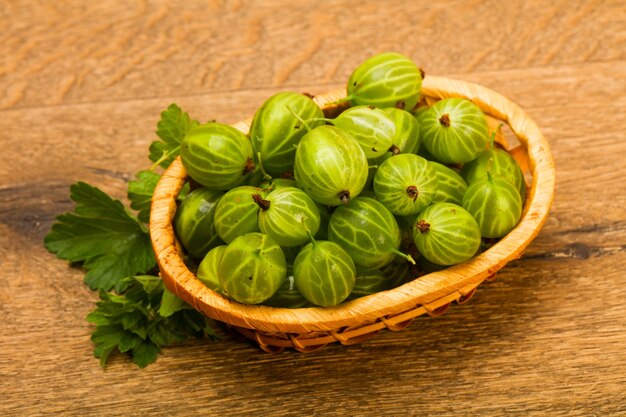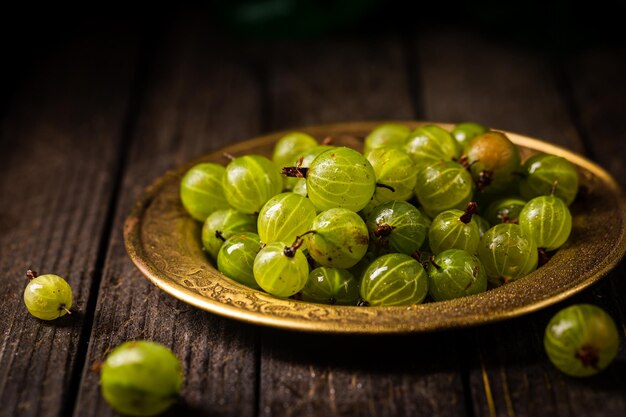Ask Ayurvedic doctor a question and get a consultation online on the problem of your concern in a free or paid mode. More than 2,000 experienced doctors work and wait for your questions on our site and help users to solve their health problems every day.
Discover Amla's Health Wonders

Key Takeaways
- Amla, or Indian gooseberry, is a vital component in Ayurveda, renowned for its high vitamin C content and rejuvenating properties.
- This superfruit is a potent immunity booster, packed with antioxidants and nutrients that strengthen the body's defenses.
- Amla serves as a natural elixir for skin and hair, combating aging, promoting healthy hair growth, and maintaining radiant skin.
- You can easily incorporate Amla into your diet through juices and supplements to enjoy its health benefits.
- Embracing Amla can lead to a healthier, more balanced lifestyle, reflecting its holistic benefits in Ayurveda.
Ever wondered about the magic behind amla and its place in Ayurveda? This tiny, green fruit, also known as Indian gooseberry, packs a punch in the world of traditional medicine. With roots reaching back thousands of years, Ayurveda treasures amla for its powerful health benefits. It's not just a fruit; it's a symbol of wellness and balance.
In this article, we will explore the many ways amla can boost your health. From strengthening your immune system to enhancing your skin and hair, there's a lot to discover. Amla is celebrated in Ayurveda for its unique ability to rejuvenate and heal. So, if you're curious about natural remedies and holistic health, you're in the right place. Let's dive into the world of amla and uncover its secrets.
Don't wait or self medicate. Start chat with Doctor NOW
How Amla Boosts Immunity
Amla, or Indian gooseberry, is a powerful immunity booster in Ayurveda. Packed with vitamin C, it strengthens the immune system and helps the body fight infections. Just one small amla contains as much vitamin C as 20 oranges, making it an impressive source for daily intake.
Vitamin C is known to enhance the function of white blood cells, which are crucial in protecting the body against illness. This nutrient also acts as an antioxidant, reducing damage from free radicals. Such properties can be particularly beneficial during cold and flu seasons.
Amla's benefits go beyond just vitamin C. It contains other antioxidants like flavonoids and polyphenols, which further support immune health. These compounds can combat inflammation and improve the body's response to stress. By integrating amla into your diet, you can naturally bolster your immune defenses.
Amla for Skin and Hair: Nature's Elixir
Amla, often called the Indian gooseberry, is a treasure for skin and hair care. Packed with vitamin C, it rejuvenates skin, giving it a youthful glow. It acts as a natural toner, tightening your skin and reducing signs of aging. If you're battling acne, amla's antibacterial properties might be your ally, helping to clear blemishes.
When it comes to hair, amla is a wonder. It strengthens hair roots, reducing hair fall and promoting hair growth. It can add a natural shine, making your hair look healthy and vibrant. Mixing amla powder with water to create a paste can be an easy DIY treatment for dull hair.
One cannot underestimate its versatility. As beauty expert Shahnaz Husain once said,
"Amla is nature’s boon to hair care."
-Shahnaz Husain
Incorporating amla into your beauty routine can be a simple yet effective way to enhance skin and hair health.
Incorporating Amla into Your Diet
Adding amla to your daily meals can be quite simple and beneficial. This tiny fruit, known for its high vitamin C content, packs a punch. Did you know? Amla contains up to 20 times more vitamin C than oranges! This makes it a powerhouse for boosting immunity and improving overall health.
Start your day with a refreshing glass of amla juice. It’s a popular choice for those looking to kickstart their metabolism. You can make it at home by blending fresh amla with water and a touch of honey. This drink not only energizes you but also supports digestion.
For a savory twist, try adding amla to your chutneys or pickles. Its tart flavor can enhance the taste of many dishes. In Indian cuisine, amla pickles are a staple, offering a unique blend of spices and sourness. They can be a delightful accompaniment to your meals.
Amla can also be dried and used as a snack. Dried amla is chewy and tangy, perfect for a midday energy boost. You can find it in health food stores or online. It’s a great alternative to sugary snacks and keeps you full longer.
If you enjoy smoothies, toss a bit of amla powder into your blender. This is a sneaky yet effective way to reap the benefits of amla without altering the taste too much. Mix it with your favorite fruits and a splash of yogurt for a creamy, nutritious drink.
Including amla in your diet doesn't have to be complicated. With these simple methods, you can enjoy its numerous health benefits and add a flavorful twist to your daily routine.
Embrace Amla for a Healthier Lifestyle
Amla, often celebrated in Ayurveda, holds a treasure chest of health benefits. It's not just a fruit; it's a powerhouse that boosts immunity, nurtures skin and hair, and supports overall well-being. Whether you're sipping amla juice or adding it to your daily meals, this small fruit packs a big punch.
Think about the ways amla can fit into your life. Start with simple steps like including amla powder in your smoothies or trying out amla-based hair treatments. These small changes can lead to noticeable improvements in how you feel and look.
By making amla a part of your routine, you tap into centuries of Ayurvedic wisdom. It's a chance to enhance your health with a natural, time-tested approach. This isn't just about feeling better today; it's about investing in long-term wellness.
Why not share your own experiences with amla? Join the conversation and let others know how this humble fruit has transformed your health journey. Share this article with friends and family who might benefit from adding amla to their lifestyle. Dive deeper into the world of Ayurveda and discover more about its holistic health secrets. Your journey to a healthier lifestyle starts with a single step, and amla might just be it.
FAQ For Amla
What is Amla and why is it important in Ayurveda?
Amla, or Indian gooseberry, is a key ingredient in Ayurveda due to its high vitamin C content and rejuvenating properties. It is revered for its ability to balance the body's three doshas and promote overall health.
How does Amla enhance immunity?
Amla boosts immunity through its rich antioxidant profile and essential nutrients. It helps fortify the body’s defenses, making it more resilient to common illnesses and infections.
Can Amla improve my skin and hair health?
Yes, Amla is highly beneficial for skin and hair. It fights signs of aging, enhances skin radiance, and promotes healthy hair growth by nourishing the scalp and strengthening hair follicles.
What are some easy ways to include Amla in my diet?
You can incorporate Amla into your diet via fresh fruit, juices, or supplements. Amla powders and pickles are also popular and can be easily added to meals or smoothies for a health boost.
Are there any side effects of consuming Amla?
Amla is generally safe for most people, but excessive consumption may lead to digestive discomfort. It’s best to start with small amounts and consult a healthcare provider if you have any concerns.
How does Amla contribute to a healthier lifestyle?
Amla supports a healthier lifestyle by providing essential nutrients that help maintain balance in the body, enhancing physical and mental well-being, and preventing chronic diseases.
Is Amla suitable for everyone?
While Amla is beneficial for most individuals, those with specific health conditions should consult a healthcare professional before adding it to their diet, especially if they are pregnant, breastfeeding, or on medication.



